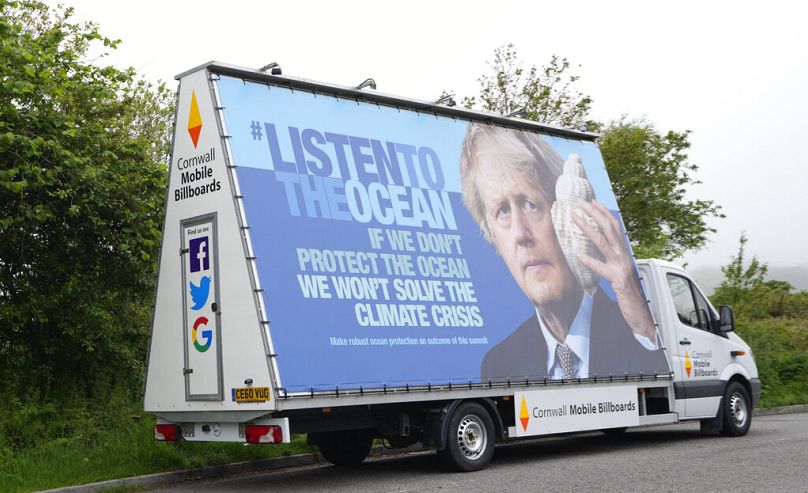As the G7 Summit gets underway in Cornwall, England, leaders are being urged to increase international development to ensure climate change targets are met.
As leaders from the world’s richest democracies gather in the small Cornish seaside resort of Carbis Bay this weekend there are hopes that it could provide an important step towards tackling climate change.
Before the COVID-19 pandemic, British Prime Minister Boris Johnson planned for the G7 Summit to be a climate-dominated event.
He had wanted to make it a major staging post to November’s international COP26 meeting on climate change in Glasgow, eliciting ambitious targets for slashing carbon emissions and expanding green industries.
Although some activists fear the global pandemic and resulting plans for economic recovery have diverted attention away from climate initiatives, some experts argue that it may have actually helped in focussing people’s attention on environmental issues.
Dr Caroline Kuzemko is an Associate Professor in the University of Warwick’s Politics and International Studies department and suggests that COVID may have heightened public awareness of the link between climate change and human activity.
“COVID has been a period of time when people have become more aware of those linkages; partly because COVID-19, in the view of a lot of scientists, was released as a result of human beings going in and interfering with nature,” she said.
Dr Kuzemko also referred to documentaries by the British natural historian and broadcaster, Sir David Attenborough who has recently addressed the seriousness of disturbing the natural world.
She says there has been a shift in thinking; demonstrated by us increasingly referring to “our environment” rather than “the environment.”
This shift has not gone unnoticed by G7 leaders who will be aiming to formulate plans to balance economic productivity with environmental issues.
A report by Swiss reinsurer company ‘Swiss Re’ found G7 countries will lose 8.5 per cent of GDP a year, or more than €4.1 trillion wiped off their economies, within 30 years if temperatures rise by 2.6 degrees Celsius, as they are predicted to on the basis of government pledges and International policy.
G7 leaders increasingly realise that economies which pollute are expensive and ultimately self-destructive.
“G7 and other, richer global nations will have to commit to paying far more money into the pot for developing countries to start to develop their low carbon revolution,” said Dr Kuzemko.
But persuading G7 leaders to dig deeper has been complicated by Britain’s decision to temporarily cut its overseas aid budget due to COVID-19 economic woes, even though it has doubled its commitment to climate finance in the next five years.
Kuzumko argues that the developmental needs of some countries need to be taken more seriously.
“What many developing countries also need to do is connect a lot of their population to electricity. So, for them, this whole financing issue is absolutely massive.”
Green groups, development agencies and international policy experts believe the G7 summit is a way to build trust ahead of November’s COP26 (26th UN Climate Change Conference of the Parties) climate talks in Glasgow, seen as crucial to putting the 2015 Paris climate accord into practice.
On environmental matters campaigners believe it is COP26 that could be the game-changer for global climate policy but G7 is an important opportunity to perform some of the groundwork.
Kuzemko says, if they are to achieve that, they will need to take action to ensure discussions are more than just idle words. She would like to see the G7 talks guarantee there is, “something in place which commits countries to actually doing it rather than just saying it.”
She says: “The politics of climate change is no longer about target-setting, necessarily; it is about how to meet those targets. The policies that need to be put into place, the fossil fuels that need to be phased out, the new innovations that need to be found.
“But crucially it is about thinking about how to make that transition to sustainability just so that enough people are brought into the process and benefit from the process.”
The G7 Summit will include bilateral and multilateral discussions on many other issues but the success of talks on climate issues are likely to be the ones that will have the most relevance to COP26 and perhaps leave the greatest legacy in decades to come.












